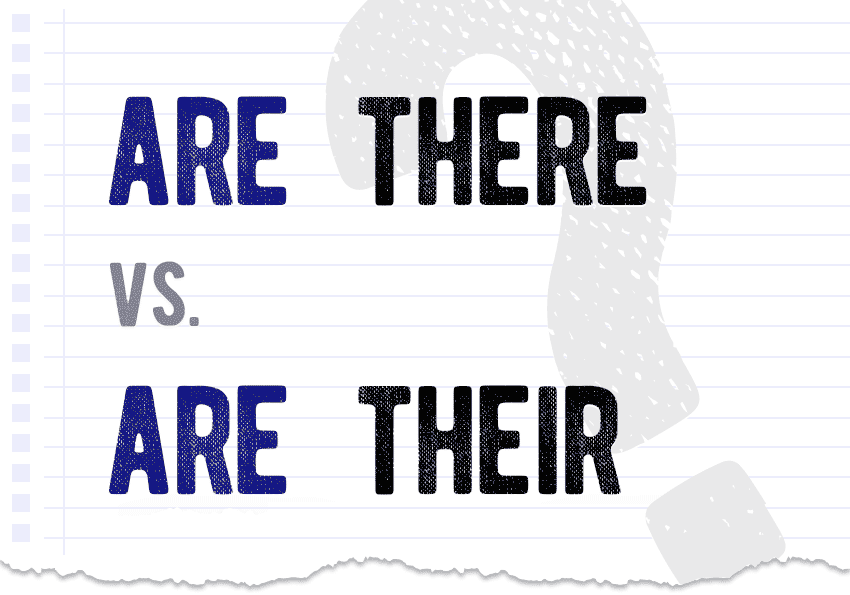Are there vs. are their — which form is correct?
Be they students of English or the native speakers — no one is immune to mistakes. Especially when you have to deal with words that sound exactly the same, for example, there or their, both pronounced as /ðɛː/ in British English. They can make you pose a question: which version is correct: are there or are their?

Are their vs. are there — is there an incorrect version?
Are their and are there are both correct forms, but their meanings are substantially different.
Their, a plural possessive pronoun, means ‘belonging to them’. The word derives from Old Norse þierra, which replaced the good Old English hiera. The pronoun sometimes refers to one person, if you want to avoid saying ‘his’ or ‘her’.
The venerable ancestor of there is Old English þær. There can boast with several more uses than the humble their. There applied as an adverb refers to a place; as pronoun, it introduces the subject of a sentence. Used as a noun, there means ‘that place or position’. If you need some emphasis, apply their as an adjective. Moreover, there is also used as an exclamation.
There, there, quite a lot for one little word, isn’t it?
Remember to watch your spelling and double check whether you have written your are their or are there correctly.
Their and there in literature
‘There is nothing in the world so irresistibly contagious as laughter and good humour’.
Charles Dickens, A Christmas Carol, 1930
‘In the beginning there was nothing, which exploded’.
Terry Pratchett, Lords and Ladies, 1992
‘So comes snow after fire, and even dragons have their endings’.
J. R. R. Tolkien, The Hobbit, 1937
‘No people whose word for “yesterday” is the same as their word for “tomorrow” can be said to have a firm grip on the time.
Salman Rushdie, Midnight’s Children, 1951


